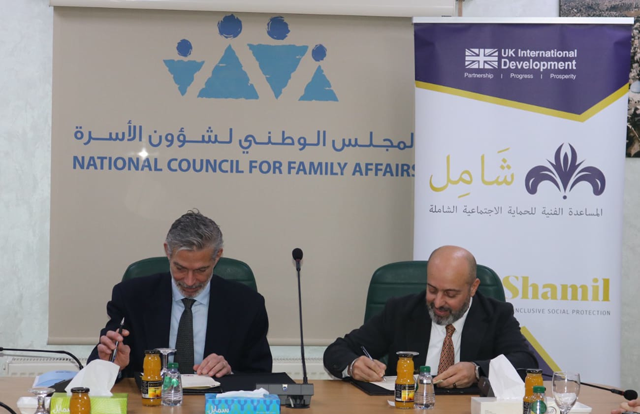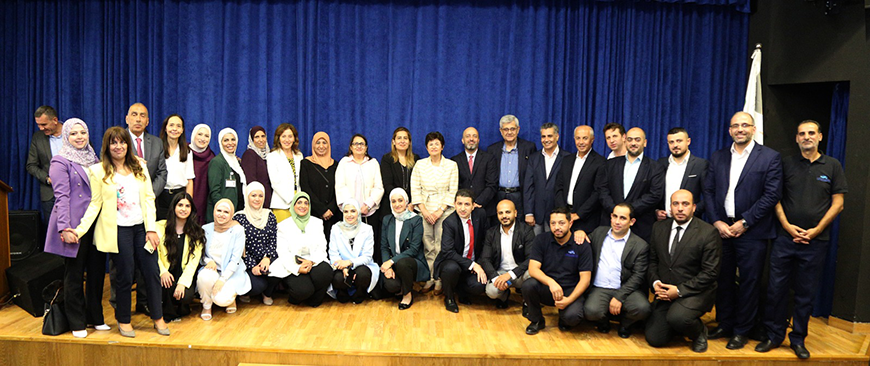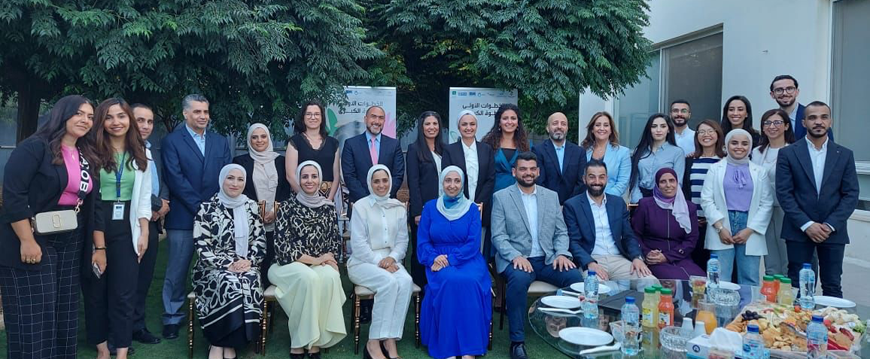You are here
NCFA, Shamil Project sign MoU to enhance cooperation on family-related issues
By JT - Nov 26,2024 - Last updated at Nov 26,2024

Under the agreement, both sides will participate in joint planning sessions in accordance with the priorities of each age group (NCFA photo)
AMMAN — The National Council for Family Affairs (NCFA) and the UK International Development-funded Shamil Project in Jordan on Tuesday signed a memorandum of understanding to enhance cooperation and partnership frameworks on issues of mutual interest related to family affairs.
NCFA Secretary-General Mohammad Miqdadi and Team Leader for Shamil Bernie Wyler signed the MoU, the Jordan News Agency, Petra, reported.
Miqdadi said that since its establishment, the NCFA has sought to institutionalise a collaborative approach among relevant agencies and institutions dealing with family affairs,
He added that this approach aims at improving the quality of life for Jordanian families and their members through various programmes and projects implemented in partnership with other stakeholders.
The secretary-general noted that the MoU with the Shamil Project aims to further enhance cooperation between the two sides via developing a work plan for all activities to be carried out under the project.
This includes sharing expertise, conducting research, preparing policy papers on family-related issues, and coordinating with partners and decision-makers, Miqdadi said, adding that the outcomes of these collaborative efforts will serve as a foundation for further studies reflecting the realities of family life and addressing issues related to family members.
For his part, Wyler expressed appreciation for the partnership with the NCFA through signing the MoU, which would contribute to realising the council’s vision to create "an enabling environment that allows Jordanian families to achieve stability and well-being."
He highlighted that a key focus of this partnership is capacity-building through developing evidence-based policies that protect all family members from risks they may face at various phases of their lives.
Under the agreement, both sides will participate in joint planning sessions in accordance with the priorities of each age group.
They will also exchange capacity-building activities and meet training needs within this framework, further boosting mutual interests and cooperation opportunities based on each side's responsibilities.
This collaboration will help assess needs, identify gaps, and avoid duplication of efforts.
Related Articles
AMMAN — The National Council for Family Affairs (NCFA) celebrated its 20th anniversary on Monday, reiterating its dedication to fostering st
AMMAN — A number of organisations concerned with early childhood development in Jordan signed a memorandum of understanding (MoU) on M
AMMAN — Secretary-General of the National Council for Family Affairs (NCFA), Muhammad Miqdadi and Secretary-General of the Jordan Hashemite


















